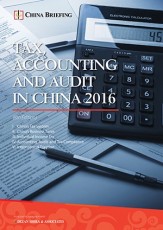Funding China’s Civil Society – Tax Incentives, Donation Law, and the Role of Foreign Charities
By Samuel Wrest
2016 saw China pass two new laws that will play a major role in shaping its civil society sector. The Charity Law, already in effect, and the Overseas Non-Government Organization (NGO) Law, set for implementation in January, are closely intertwined, but while the former has been largely praised for incentivizing and making simpler charitable donations and funding, the latter has been widely condemned for restricting which charities can accept these donations and successfully operate in the Middle Kingdom.
China is a country that has traditionally struggled with funding its civil society. In 2012, charitable donations totaled US$13.2 billion – four percent of those made in the US. 2961 philanthropic foundations were registered during the same year – three percent of the US – and only 1.5 percent of those foundations actually funded grassroots NGOs. On the Charities Aid Foundation’s World Giving Index for 2015, China ranked 144th out of 145 countries, with only Yemen ranking below it.
The Charity Law is seen as an attempt to address this imbalance. The law contains various tax incentives for both charitable donations and charitable organizations themselves, potentially increasing the amount of funding that they receive. When considered alongside the Overseas NGO Law, however, the Charity Law’s potential impact is tempered. The NGO Law prohibits foreign charities from accepting donations in China, and looks set to further scale back their operations, significantly shrinking the pool of charitable organizations that the Charity Law could actually benefit.
Defining NGOs and charities in China
The Charity Law
Foreign and domestic charities are defined differently in China, with the new Charity and Overseas NGO Laws detailing what activities they must each respectively undertake and, more importantly, what they are unable to do.
The Charity Law has a specific list of activities that qualify as being charitable, carried out by either providing services or donating property. They include:
- Aiding the poor and the needy;
- Assisting the elderly, orphans, the ill, and the disabled;
- Alleviating damages from natural disasters, accidents, public health incidents, and other emergencies;
- Promoting the development of education, science, culture, health, sports, and other causes;
- Preventing and controlling pollution and other public hazards, protecting and improving the ecological environment.
The law emphasizes that any organization carrying out charitable activities must abide by principles of being “lawful, voluntary, in good faith, and non-profit”, and cannot “violate social morality, or endanger national security or harm public interest or the lawful rights and interests of others.” A definition of the latter terms, however, is not provided.
![]() RELATED: Hiring Disabled Workers in China: Incentives and Challenges
RELATED: Hiring Disabled Workers in China: Incentives and Challenges
The Overseas NGO Law
Article 2 of the Overseas NGO Law refers to foreign NGOs as “not-for-profit, non-governmental social organizations lawfully established outside mainland China, such as foundations, social groups, and think tank institutions.” Article 10 further clarifies that foreign organizations must have existed for two years prior to entering China.
Article 5 of the NGO Law is perhaps its most arbitrary, broadly stating that foreign NGOs must not “endanger China’s national unity, security, or ethnic unity; and must not harm China’s national interests, societal public interest and the lawful rights and interests of citizens, legal persons and other organizations.” The vagueness of the language used, combined with the law shifting who NGOs are reviewed by from the Ministry of Civil Affairs to the Public Security Bureau – widely seen as an attempt to further crack down on activism – is likely to have the biggest impact on their operations in China.
Tax incentives available to charities
Incentives for companies making donations
Businesses – including foreign businesses – that provide charitable donations to domestic charities are eligible for special tax treatment, with corporate income tax (CIT) waived on donations accounting for up to 12 percent of their profits. This can be rolled out over a three-year period. If a company donates US$4 million and their profits are US$10 million, for example, they wouldn’t be able to deduct the entire US$4 million for a single year’s CIT, but would be able to do so incrementally over three years.
Additionally, overseas companies making donations are entitled to either a reduction or full exemption of China’s import duties and import VAT.
Incentives for charities and NGOs
Both the Charity Law and the Overseas NGO Law state that charitable organizations are eligible for tax incentives, but don’t specify what exactly these incentives are. This may be because the laws are new and still due for revision of specific policies, or, perhaps more likely, that they’re intentionally vague to allow for individual assessments rather than a blanket tax reduction.
Qualifying for the incentives
In order for a charity to qualify for these incentives, they must appoint a trustee, have them sign a “charitable trust document” (慈善信托文件), and file it with their local department of the Ministry of Civil Affairs. Failure to do so results in both the charity and companies making donations to that charity being ineligible for tax benefits. For donating companies, it is therefore advisable to check that the charity has gone through these procedures prior to making a donation.
![]() RELATED: Tax and Compliance Services from Dezan Shira & Associates
RELATED: Tax and Compliance Services from Dezan Shira & Associates
Methods for funding foreign charities and future outlook
With foreign charities and NGOs prohibited from both receiving donations in China and conducting for-profit activities, the means of funding them is essentially limited to overseas payments. These payments can gain interest in Chinese bank accounts, but any other funding method runs the risk of seeing the charity closed.
The implementation of the Charity and Overseas NGO Laws will therefore see a clear line drawn between funding available to foreign and domestic charities. Because of its restrictions, the new source of funding that the donation tax incentive creates will be limited to domestic companies, weakening overseas charities’ competitiveness and ability to operate in the Chinese market. The same can be said for domestic charities that collaborate with or receive funding from their foreign counterparts, with such charities often closely monitored for doing so.
The two new laws present a mixed bag for the future of China’s civil society sector. The Charity Law is almost certain to provide a well needed boost to domestic charities in the country, but, as indicated in its description of charitable activities, only to those engaged in certain areas, such as social service provision – a sector where civil society is well placed to fill the gap left by the state’s gradual withdrawal of funding. Engagement in other areas, such as political rights, labor rights and religion, would likely be seen as harming the “national security” and “public interest” specified in the Charity Law. Conversely, foreign charities – which are generally more willing to engage in some of the latter areas – will have even less space to work in the Middle Kingdom. In short, the implementation of the Charity and Overseas NGO Laws is further evidence that the Chinese government is crafting its own civil society. Foreign charities do not feature heavily in its plans.
|
Asia Briefing Ltd. is a subsidiary of Dezan Shira & Associates. Dezan Shira is a specialist foreign direct investment practice, providing corporate establishment, business advisory, tax advisory and compliance, accounting, payroll, due diligence and financial review services to multinationals investing in China, Hong Kong, India, Vietnam, Singapore and the rest of ASEAN. For further information, please email china@dezshira.com or visit www.dezshira.com. Stay up to date with the latest business and investment trends in Asia by subscribing to our complimentary update service featuring news, commentary and regulatory insight.
|

 Tax, Accounting, and Audit in China 2016
Tax, Accounting, and Audit in China 2016
This edition of Tax, Accounting, and Audit in China, updated for 2016, offers a comprehensive overview of the major taxes that foreign investors are likely to encounter when establishing or operating a business in China, as well as other tax-relevant obligations. This concise, detailed, yet pragmatic guide is ideal for CFOs, compliance officers and heads of accounting who must navigate the complex tax and accounting landscape in China in order to effectively manage and strategically plan their China-based operations.
 An Introduction to Doing Business in China 2016
An Introduction to Doing Business in China 2016
Doing Business in China 2016 is designed to introduce the fundamentals of investing in China. Compiled by the professionals at Dezan Shira & Associates in June 2016, this comprehensive guide is ideal not only for businesses looking to enter the Chinese market, but also for companies who already have a presence here and want to keep up-to-date with the most recent and relevant policy changes.
 Human Resources and Payroll in China 2016-2017
Human Resources and Payroll in China 2016-2017
A firm understanding of China’s laws and regulations related to human resources and payroll management is absolutely necessary for foreign businesses in China. This edition of HR and Payroll, updated for 2016/17, navigates China’s laws and regulations related to HR and payroll management – essential information for foreign investors looking to establish or already running a foreign-invested entity in China.
- Previous Article China Regulatory Brief: Hong Kong-Shenzhen Stock Connect Tax Policies Clarified and Breastfeeding Leave Law Passed in Tianjin
- Next Article New Horizons: Investing in China’s Civilian Airport Industry




























